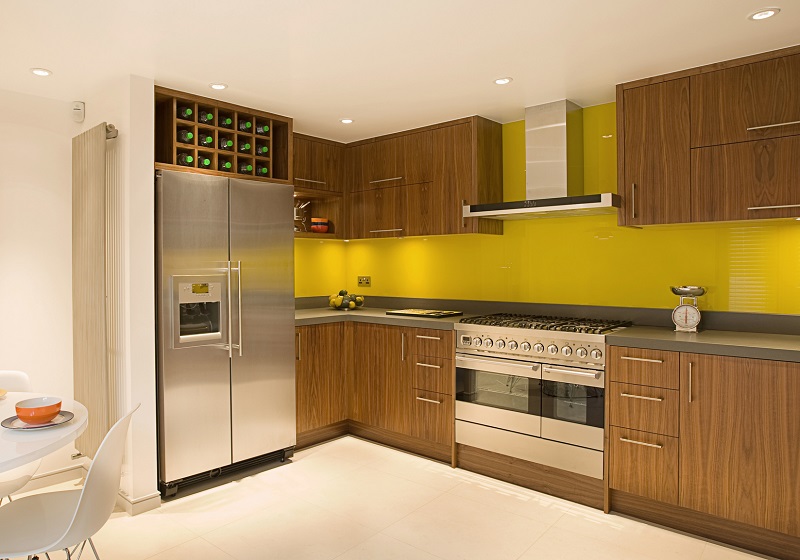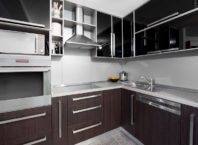Living in your home without being able to use the kitchen can be frustrating. If you will be investing in a minor remodeling project, you won’t be able to use the kitchen for one to two weeks. If your cooking area will undergo a major renovation, you can’t use this room for three to six weeks at least.
Because of this, a kitchen remodeling project can sometimes be really challenging and frustrating. However, with careful planning and preparation, you will be able to deal with and survive the whole process. And at the end of the project, you won’t regret investing in the renovation job and working with your provider of kitchen remodeling services.
Below are six helpful tips for preparing for your kitchen remodeling project:

1. Set up a temporary kitchen
Having your kitchen remodeled doesn’t mean you can’t cook and eat at home anymore. You can still create your culinary masterpieces and not worry about the dirty pans, pots, and dishes piling up. You can do this by creating a temporary kitchen.
If you already have an outdoor kitchen, you can move your appliances and furniture outside to have an instant cooking and dining area. If you don’t have a lawn, the dining room or den will work great as a temporary kitchen.
You can use a folding table as a countertop. This table will give you surface to work on, and you can also set up a few small appliances on this table.
Whether you have your temporary kitchen indoors or outdoors, protect all your kitchenware properly. Keep commonly used kitchen items in airtight plastic storage containers and label them.
2. Designate a temporary dining area
If your kitchen also doubles as your dining area, you need to find a place where you and your family can eat during the project as well.
If your patio is fully outfitted to function as an outdoor dining area, you and your family can have some meals there. However, eating outdoors early in the morning or when it is raining hard isn’t advisable. As such, you will still need to find another dining area.
The family and living room can both work well as a temporary dining area. You can also set up your microwave, toaster, coffeemaker, and even your fridge in this area to make eating here more convenient.
3. Pack and store kitchen items you don’t use frequently
A week before the project begins, pack all dishes, bowls, pans, pots, cutlery, small appliances, and other items you don’t regularly use. Remove or take down all other valuable and breakable items in the kitchen as well such as expensive light fixtures, vases, and framed photos or paintings.
Place them in durable boxes or plastic storage containers. Make sure you follow the right packing techniques so that they won’t get damaged when you move the boxes or containers.
You can store them temporarily in the basement or in an unused bedroom. You can also rent a unit in a self-storage facility if you don’t have any place in your home for storing these items. Another option would be to rent a mobile storage pod so that you can access these items easily if you need them.

4. Protect your kitchen floor
Keep in mind that your contractors will be moving and using heavy objects and equipment that can damage the floor when renovating your kitchen. If your kitchen floor has already been redone or is still in good condition that replacing it isn’t practical, make sure you protect it before work begins.
An inexpensive way of doing this is to buy some carpet scraps from a carpet store and lay them over the kitchen floor. Tape them down with duct tape so that they won’t slide easily. However, if you have a hardwood floor, don’t use duct tape since the adhesive might damage the finish.
5. Buy lots of paper plates and cups, and disposable utensils
Washing pots, pans, and dishes in the bathroom sink can be annoying since it is smaller than a kitchen sink, not to mention unhygienic.
To avoid having to do this, keep a stock of disposable plates, cups, and utensils. Use them during mealtimes and even when preparing dishes and you will find yourself less annoyed by this chore.
6. Prepare for lots of dust and noise
Lastly, a kitchen remodeling project is always messy and disruptive. As such, brace yourself for the mess you will have to see and possibly clean up every day.
You will constantly hear the sound of drilling and hammering as well. If you can’t stand the sound of loud noises, use the remodeling project as an excuse to go out during the day. You can even go on a short holiday. You can come back when the project is over or nearly done, and inspect your new kitchen.
Whatever your reason is for investing in a kitchen remodeling project, make sure you are prepared for the whole process financially and physically. By doing so, you will encounter fewer difficulties, and you will ensure the project yields the outcome you are looking for.
AUTHOR BIO
Bill Fannin started Post & Beam 27 years ago as a small construction company and, in 2004, decided to specialize in design/build. Since then, he has grown the company into a very reputable Design/Build Firm. You can find Bill in the office helping with estimates, consulting clients, and even on the job helping the carpenters. Bill is a Certified Graduate Remodeler and Certified Green Professional.







